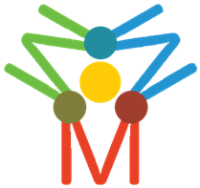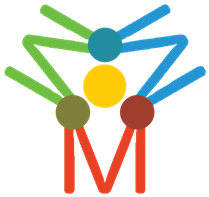Migrant Mentorship Model (MMM) presents a tailored approach to the teaching of basic skills of literacy, numeracy, ICT and social competences to migrants by addressing the issue from a migrant perspective.
MMM is a 2-year project that brings together four partners from Slovenia (Andragoški zavod Maribor-Ljudska univerza and OZARA d.o.o.), Germany (INIBIA EEIG) and Italy (Eurocultura). The partners work in the fields of adult education, VET, occupational integration and social/cultural integration. All have experience with migrants and other disadvantaged groups. The partners work in localities where migrants are present and new approaches can benefit them and those working with them.
Migrants arriving in the EU face linguistic, cultural and social obstacles that make their learning and subsequent integration a slow and stressful process. At the same time these new type of learners present a challenge to educators. Especially linguistic obstacles make acquisition of new skills needed for integration a complicated process and even more so in the case of low-skilled or illiterate migrants who represent a significant share of all new migrants. New educational tools and approaches, addressing the needs of both sides must be offered to migrants and educators. We believe that active migrant participation in the creation of teaching tools and strategies can benefit migrants and educators alike.
For this reason the Migrant Mentorship Model will train 4 migrant-mentors in each partner country. The mentors will be well integrated migrants with knowledge of basic skills and host-country language as well as major migrant languages. They will transfer their knowledge to other migrants in a 96-hour long pilot programme taking place over a period of 4 months and help them achieve basic knowledge of host-country language and other basic skills needed for further learning and integration. As migrants themselves they will be more then teacher to other migrants, they will be mentors. By using migrant languages to explain often abstract concepts related to basic skills they will convey the meaning more directly and efficiently. This is of great importance in the early stages of basic skills learning when migrants lack even the most basic knowledge. They will also be able to put new knowledge in cultural and social context which is hard to understand for new migrants. At the end of the 4-month period participating migrant learners will take part in a 32-hour evaluation in the workplace that will take place over a period of 2 months. This will help them test their new basic skills in real life environment.
The entire 4-month mentoring process and 2-month evaluation will be closely monitored by a process of guided reflection. Guided reflection will be done by migrant-mentors. They will follow previously determined guidelines to observe key elements of the mentoring and evaluation process regarding cultural, social, linguistic and other aspects. On the basis of the guided reflection the following results will be created:
1. Migrant Mentorship Model Teaching Plan which will contain recommended standards of knowledge in the area of literacy, numeracy, ICT and social competences an strategies on how to achieve them.
2. Migrant Mentorship Model Curriculum will be a set of guidelines for training of migrant-mentors in the area of literacy, numeracy, ICT and social competences.
3. Migrant Mentorship Model Guided Reflection and Tips for Educators will contain observations from the guided reflection done by migrant-mentors. It will provide educators working with migrants a unique insight into migrants as learners. It will also contain teaching tips that will allow educators to tailor their teaching to the needs of migrants.
4. Migrant Mentorship Model Guided Reflection and Recommendations for Employers will contain observations of the guided reflection of the 2-month evaluation in the workplace. This will give employers better understanding of migrants as workers. It will also have recommendation on how to optimally integrate migrants in the workplace.
5. Migrant Mentorship Model Efficiency Study as an evaluation of all project activities.
As the four major results will be produced with heavy involvement of migrant mentors they will give educators and employers valuable data on how to approach migrants in education and employment – the two major factors in the process of integration. We envisage that the project results will invite educators and employers to re-think and re-evaluate migrants as learners and employees for the benefit of all parties.


 Migrant Mentorship Model on Facebook
Migrant Mentorship Model on Facebook